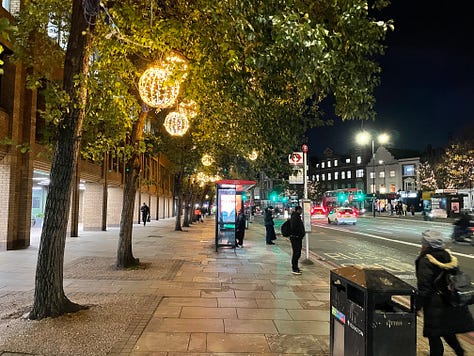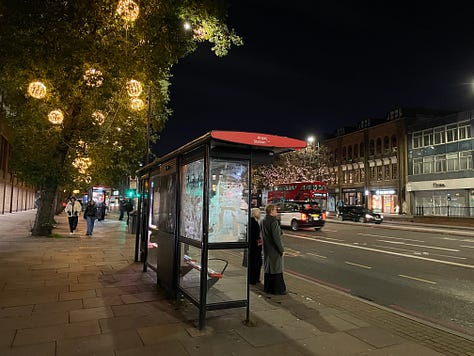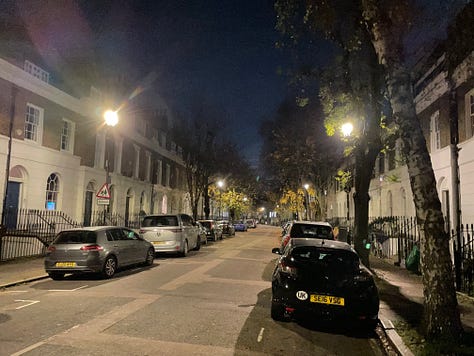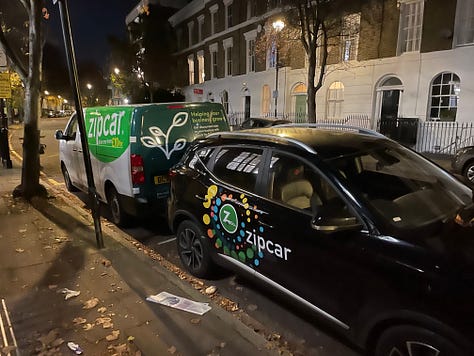Good day my good friend.
During the last couple of weeks, I have had some exciting news. The proof of the book on Mobility-as-a-Service I have co-authored with Beate Kubitz finally came back, and it looks great. I have about a million things to check on it, and not enough time. But the feeling of being a step closer to being a published author is somewhat strange.
If you like this newsletter, please share it with someone else who you think will love it. The main way my audience grows is through your recommendations. I will love you forever if you do. ☺️
James
🥷 Time to start with the dark arts
One of the joys of being a councillor is that you get a small insight into the dark arts of how decisions are made. We all know that if evidence was made upon policy – heck, even if it was made on pure economics – then we would be laying cycle tracks far more than we are laying new roads, and electric vehicles would already be at 50% of new car sales. We know from behavioural economics that humans do not make rational decisions (a plug for the always-excellent Transport for Humans here), so how on Earth are decisions made?
They are not made in council chambers or in meetings with officers. They are discussed in WhatsApp groups, strategised in the pub over a pint, war-gamed in shut away meeting rooms in grand old buildings, and even threatened in the corridors of power. Having seen this for myself, and spoken to many who have worked in areas of power from Whitehall to Town Hall, decisions are made well before a formal resolution is put to the Council or a bill is debated on the floor of the Commons.
This sounds very conspiratorial I know with dark money and shady characters lurking in the backdrop of our nominally free democratic nations. My experience of this has been somewhat mundane compared to the extensive lobbying of Whitehall done by your average think tank in Tufton Street. Incidentally, if you think that your own innocent, perfectly good national charity that you support has not tried the same then I have some bad news for you.
The reason that I set this out is not to try and red pill you and make you aware of some grand conspiracy and encourage you to take up arms against the WEF-funded wokerati. It is to set out what the playing field is like when it comes to the biggest barrier against doing things: political will.
Us transport professionals play an evidence-driven game. We work on the assumption that if we present the base case, backed up by evidence and facts, the logical brain will kick in and people will support our recommendations. But by doing so, we are bringing a knife to a gun fight. We present policy and logic to politicians who within a day of them securing the transport gig were briefed by the Society of Motor Manufacturers and Traders. Or already had their view on transport economics shaped by their time in the Institute of Economic Affairs, or their politics course at Oxford University.
We need to start learning of and deploying the dark arts of decision making. To get to a clean and just future means getting dirty, and into the dirty world of political influencing and politics. Not just talking to the politicians who support us and what we say, and certainly not trying to brief them well after they have been in the role for some time.
One of my research projects for next year, funded by the Foundation for Integrated Transport, is to study quite how decisions are made when it comes to transport, with the hope of providing some useful tools to us as transport professionals to what most of us know is the key blocker to change – politics. I find it astounding how we constantly state the barrier is politics, yet we do nothing about it. We have no option but to do something about it – the solutions we are deploying cannot wait for politicians to one day, hopefully, make the right decision.
In the meantime, what we can do is support those who are fighting the good fight for sustainable transport and with a focus on equity and justice. Give them your votes, campaign for them, even advise them if you can. But we really need to consider perfecting the dark arts ourselves if we want radical change. And its high time we found out what those are.
What you can do: Support great councillors and other politicians who back sustainable transport. Lend them your vote, support their campaigns, share the fact that you support them and why (your family and friends do care about what you say and your view).
If you are trying to win over a councillor, do some research on them. Research their priorities, why they got into politics, what their motivations are. Chances are they will have a campaigning website somewhere that literally tells you this. Use this to then tailor your message to them.
🎓 From academia
The clever clogs at our universities have published the following excellent research. Where you are unable to access the research, email the author - they may give you a copy of the research paper for free.
Ride-hailing and transit accessibility considering the trade-off between time and money
Tl:DR - Ride hailing can expand accessibility significantly. If you are rich.
Matching vs. Individual Choice: How to Counter Regional Imbalance of Carsharing Demand
TL:DR - Researchers find out that the real world is different to their theoretical demand models.
Socio-demographic inequalities in the impacts of extreme temperatures on population mobility
TL:DR - Hot weather means fewer short trips. Cold weather means more short trips.
TL:DR - Different genders and ages use micromobility differently.
✊ Awesome people doing awesome things
I have to say a huge, huge thank you to the amazing Sarah Barnes and Ali Griswold, for arranging an amazing Mobility Happy Hour in London yesterday evening. It was a fantastic evening full of happy, positive people talking all things transport, with many doing truly inspirational things.
By the way, Ali is looking to do some work in policy making. I have seen her work as a journalist and it is insanely good. She has some real in-depth expertise in transport technology, platform regulation, and sustainable cities. And she is looking to put that to practical use. Her latest newsletter (that you must subscribe to by the way) sells her better than I can. If she sounds perfect for you, then message her on LinkedIn.
📷 Out and About
I know many are you are not fans of the dark evenings here in the UK – for understandable reasons. But I am very much a night owl, and last night I got to see some beautiful areas in Islington and Kings Cross in London under the street lights. As well as a car club with a van, and some lovely cycle parking outside a pub. Enjoy.






📼 On the (You)Tube
This is a very good video on translating the climate science into “normal language.” And using Jo Brand is inspired. Warning, as it is Jo Brand, there is some colourful language.
🖼️ Graphic Design

I love old railway posters such as this. They are not flashy, or even that creative. They are just sleek, stylish, and no-nonsense. Sadly the Advanced Passenger Train was not like that for passengers, though the idea eventually won out with the introduction of the Pendolino trains on the West Coast Mainline.
📚 Random things
These links are meant to make you think about the things that affect our world in transport, and not just think about transport itself. I hope that you enjoy them.
The reincarnation of totaled Teslas—in Ukraine (Ars Technica)
Are rents rising in your Philly neighborhood? Don’t blame the baristas (The Conversation)
Media Matters and the Fake News Era Go to Court (Racket News)
The Dystopian AI Future Some Fear Is the Present-Day Reality Others Live (Fair)
Food Insecurity Increased Faster in Rural Areas than Urban Ones Last Year (Daily Yonder)
✍️ Your feedback is essential
I want to make the calls to actions better. To do this, I need your feedback. Just fill in the 3 question survey form by clicking on the below button to provide me with quick feedback, that I can put into action. Thank you so much.


